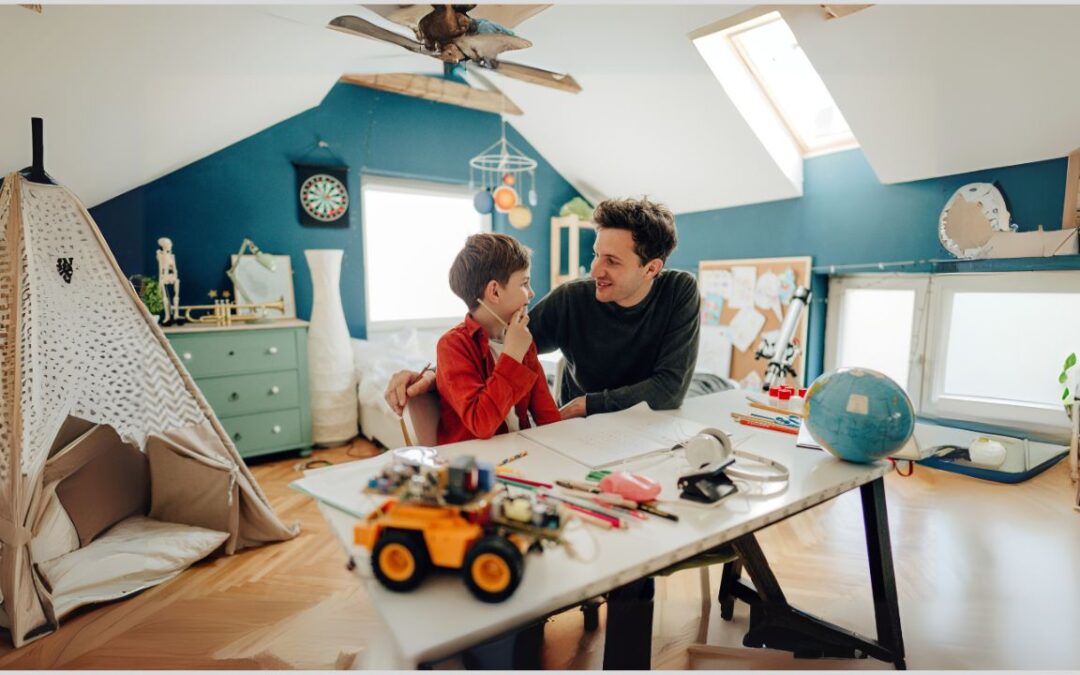With the threat of the Department of Education being abolished and 17 state attorney generals requesting Section 504 be removed from law because they believe it is unconstitutional, you may feel like your autistic child’s rights to an education are under attack. Now is the time to start thinking of your education options for your child if you feel like their special education services, accommodations and rights are being diminished. Will it still be worth keeping them in public, charter, or private schools? Would homeschooling your autistic child actually become the better option?
How could your autistic child’s education rights and accommodations be impacted?
I know many people don’t like politics and/or don’t want to pay attention to them. I completely get that, and I’ve felt like that many times during the past several years. But right now, this is totally different and not normal politics. As a parent of an autistic child, you absolutely should know what is going on currently and start keeping track of certain actions because they will affect your child and family if they are enacted.
The elimination of the federal Department of Education could:
- Reduce funding for special education. About 12 to 14 percent of a school’s funding comes from the federal government. Much of that goes toward special education, and your state and local government would need to figure out how or if to provide those services without additional funding. They would still have to adhere to the Individuals with Disabilities Education Act (IDEA) requirements to provide education and accommodations to students with disabilities.
- Make it harder to file complaints about discrimination against your child for their autism because the Office of Civil Rights would be transferred to another agency. With this change, experts note the protections of students may be harder to enforce and may require more litigation to protect your child’s rights.
The removal of Section 504 from the Rehabilitation Act in the Texas vs. Becerra lawsuit could have more consequences for your autistic/ADHD student:
- While 504 plans are different than Individualized Education Plans (IEP), they still require students with disabilities to be included in school and be provided with the accommodations, tools, and services they need to learn the same as their peers.
- Section 504 provides additional protections for students with disabilities that go beyond the IDEA requirements and other federal education laws.
- Parents would have to rely on a state’s 504-type of laws, without any federal back-up if their students’ rights to education are not upheld.
- ADHD is the most often covered disability for students who have 504 plans. If Section 504 is eliminated, then they lose their accommodations that help them with learning. Ironically, most of these are low to no-cost accommodations like preferential seating, movement breaks, extra time for tests, planners, written or verbal instructions, and audio/reading aloud of test questions.
Would homeschooling be an option for your autistic child?

These changes could make a big difference in your autistic/ADHD child’s ability to obtain all the accommodations they need in school. If that is the case, would some parents opt to try another route for educating their autistic children such as homeschool?
I realize that homeschool would put even more burden on already overwhelmed parents of autistic children. Already, they struggle with providing care and obtaining services for their child without much support. I was in the same place myself when my son J was younger. My now ex-husband and I talked about it. As the stay-at-home parent, he did not have the patience to be able to homeschool J, but we were not in this situation. We had a fairly good school system that provided J with the accommodations he needed. (Even though at times, I had to really fight to get J accommodations and then enforce them.) If we weren’t able to do that, we may have taken a different route. Thankfully, J was able to be mainstreamed in school with a special education resource teacher for support. He graduated with his Core 40 high school diploma like his peers, but it was tough.
Yet, we had good friends who were in a different situation. The mom taught math in a school district near us, but her son who had autism and sensory processing disorder could not get the accommodations he needed in his elementary school even with mediation (in that same district BTW). To make matters worse, the teachers would jeer him about what he ate or didn’t eat at lunch. That was not okay for anyone but especially not for a child who had sensory issues related to food. She finally pulled him from that school, and his wonderful grandma who lived with them homeschooled him through an online school. He successfully graduated from high school through that process. It worked better for him.
I hope you are not in a situation where you will have to make that decision, but lately I’ve found myself doing all sorts of scenario planning as many others are. Thinking through your child’s education options and doing some research may be worth it, even for peace of mind that you have a back-up plan.
Defining Homeschool
First, what do we mean by “homeschool”? There are several types of homeschooling, so let’s define the different options.
Traditional homeschool means parents use curriculum and teach their children themselves. They follow the laws and requirements for homeschooling in their state and submit the required paperwork each school year.
Online schools are those schools that teach students almost entirely through distance learning. It’s a full school day online with teachers who are delivering lessons through an online platform. The school follows the state’s education requirements and provides the same reporting required to the state that other school systems must follow. A local online school may offer limited in-person sessions for students.
Virtual or remote school options are from local school systems that are for students who prefer to participate in school remotely through an online platform. It could include students participating in their normal classes through Zoom, Google Hangout, or other software. They have the same assignments and projects as their classmates who are attending school in person. My youngest son just switched to this option for his last semester of his senior year. It has been one of the best decisions we’ve made. He really loves it, and it made sense since he had only three classes he needed to graduate. We did have to change school districts, but it has been a positive change for us.
Research the laws, requirements, and resources for homeschool in your state

If you plan to homeschool your child with autism/ADHD yourself (instead of having them participate in a virtual option from your school system or place them in an online school), become familiar with your state’s laws and requirements for homeschooling. You also should research several curriculum options for special education homeschool. If your child is usually included in mainstream classrooms at school, then general homeschool curriculum should work for them.
Whichever style and curriculum for homeschooling you decide to use, be sure it’s a good fit with your family and the time you want to put into homeschooling. For instance, a curriculum that provides all the prep work, etc. may be better suited for you and your child.
Look for local groups or resources for homeschooled children
Some libraries, museums and other organizations locally may provide group activities or specialized curriculum for homeschooled children. I remember seeing homeschool activities and a weekly group offering at our local library when J was younger. They promoted it in the children’s room at the library, and I always thought what a great resource that would be. Our city’s children’s museum also offered special activities for homeschooled children too. These can be wonderful ways to socialize your child too and enhance their social skills.
Consider the benefits of homeschooling your autistic child
There are many benefits to homeschooling your autistic child. Some of them include:
- Flexibility of both the daily schedule and the curriculum.
- Ability to incorporate your child’s special interests into lessons to help them focus better and be more interested in learning.
- Reduced stress for your child if going to school increases their anxiety and are more prone to school avoidance.
- Decreased risk of being bullied.
- Focus on teaching using your child’s preferred learning style.
- Ability to design the curriculum based on the exact needs of your child.
- Know that your child is safe while learning.
If you’ve homeschooled your autistic child, what tips or recommendations do you have? Leave a comment so that we can share and encourage one another on this journey.







